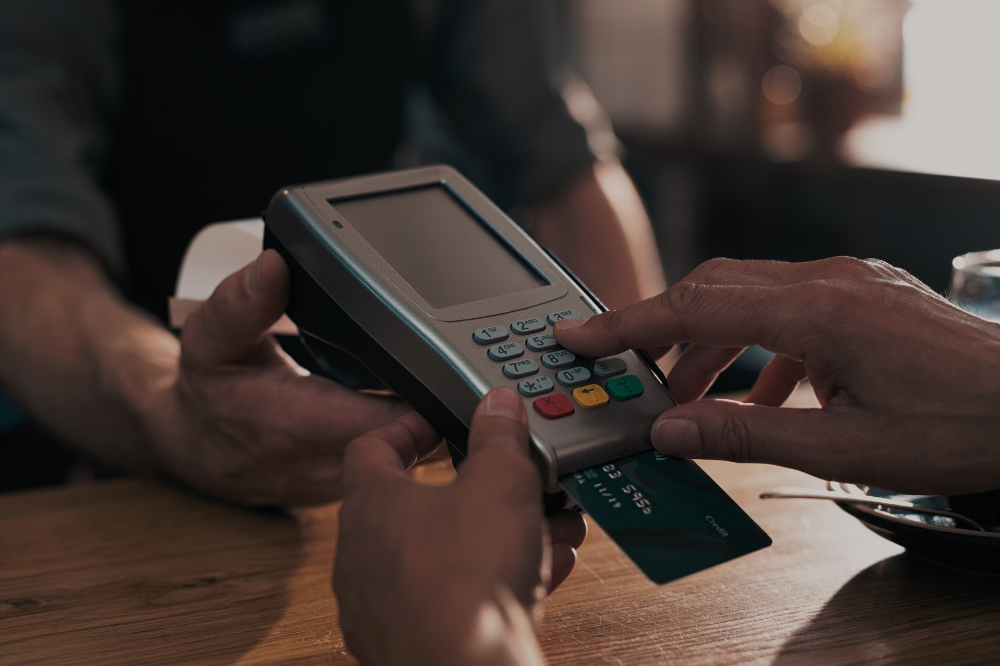Have you ever had your credit card declined? Find out the reasons why this happens and how can you prevent it!
Having your credit card declined at checkout can be incredibly frustrating. Whether you’re at the grocery store, making an online purchase, or on vacation, a declined card can throw a wrench into your plans.
So, if you’re wondering why it happens, we have the answer for you! Find out how to prevent it from happening and what can be done to fix the issue. Also, if you want to check out more financial tips on our website, you can click on this link!
Why Is My Credit Card Being Declined?
- Insufficient Funds: if your current balance exceeds your credit limit, or if you’re nearing your limit and haven’t factored in recent transactions that haven’t posted yet, your card will likely be declined;
- Suspicious Activity: to protect you from fraud, credit card companies monitor your spending patterns for unusual activity. If your card issuer detects a purchase that seems out of the ordinary, geographically distant from your usual location, or for an exorbitant amount, they might decline the transaction to investigate further;
- Expired Card: if your card has expired, your transactions will be declined, so ensure your card hasn’t reached its expiration date;
- Incorrect Information: double-check that you’ve entered the correct billing address, security code, and expiration date during the transaction. A simple typo can lead to a decline;
- Daily Spending Limits: some cards have daily spending limits, separate from your overall credit limit. If you surpass this limit in a single day, you might not be able to use it until the next day;
- Network Issues: technical difficulties with the payment network processing your transaction can cause a decline. This is usually temporary, so it might be worth trying again shortly;
- Authorization Holds: for certain purchases, like renting a car or booking a hotel, the merchant might place a temporary hold on your available credit. It can reduce your spending power until the hold is lifted, leading to decline;
- Card Not Activated: if you recently received a new credit card, ensure you’ve activated it following the instructions provided by your issuer;
- Reached Cash Advance Limit: some credit cards have separate limits for cash advances, which are typically lower than your regular spending limit. Exceeding this limit can lead to a decline;
- Account Restrictions: in rare cases, your credit card issuer might restrict your account due to suspicious activity or delinquent payments. Contact your issuer immediately if you suspect this might be the case.
What to Do When Your Credit Card is Declined
- Verify Account Information: double-check that you’ve entered all the billing details correctly. A simple typo can be the culprit;
- Have Backup Payment Methods: always carry more than one payment option. In addition to your main card, keep a backup card, your debit card, and some cash. This prepares you for situations where your card might be declined or where certain payment methods are not accepted;
- Contact Your Card Issuer: once you’re able, call your card issuer. You can also check your credit card app for alerts about fraud or suspicious activity, as well as issues related to your balance or payments. A representative can explain why your transaction was declined and help restore access to your card.
How to Prevent Future Declines
- Monitor Your Balance: regularly check your credit card balance to ensure you’re staying within your limit. Opt for balance alerts from your issuer to stay informed;
- Inform Your Issuer About Travel Plans: if you’re traveling internationally, notify your credit card issuer beforehand to avoid declines due to suspicious activity flags;
- Review Spending Limits: be aware of your daily spending limits and plan your purchases accordingly. Contact your issuer to inquire about increasing the limit if necessary;
- Keep Your Information Updated: ensure your billing address and phone number associated with your credit card are current and up to date;
- Consider a Credit Card with Fraud Protection: many cards offer robust fraud protection features. Look for cards that utilize chip technology and offer real-time purchase notifications.

